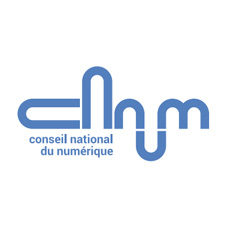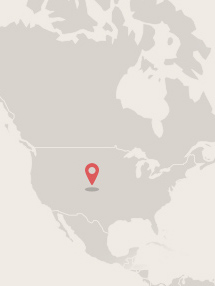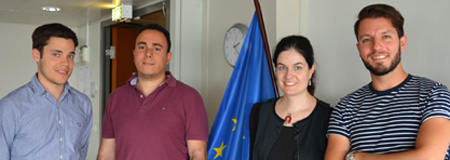 |
Regulation in action
Arcep performs a complete check-up of the Internet in France in 2018
For the second year in a row, Arcep has published its report on the state of the Internet in France. Delivered to Parliament, this report examines the different components of fixed and mobile Internet networks: quality of service, interconnection, the progress being made with IPv6, net neutrality and the openness of devices. Modelling itself on an “annual check-up,” Arcep delivers a diagnosis on each for the year gone by, and identifies the shock therapies or preventive medicine required. The goal: to ensure that the network of networks that is the Internet remains an inclusive public resource.
In 2017, Arcep’s actions focused in particular on measuring the quality of fixed Internet access services. As Arcep Chair, Sébastien Soriano, reiterated in a recent interview with 01net: ‘There are no tools available today that are powerful enough to erase any doubts about their reliability’. To remedy that, and increase transparency and clarity, Arcep called on all of the stakeholders from the QoS measurement ecosystem, and adopted a co-construction approach. Today, there are more than twenty entities involved in the process. Arcep will be publishing a joint code of conduct for all of the players, and will develop an API detailing the “access ID card” for each device.
2018 report on the State of the Internet in France
Report summary
Everything you need to know about the net neutrality debate
Sébastien Soriano interview with 01net (in French)
|  |
 |
|
On our radar
| |
The 30 new members of the French Digital Council
Thirty new members have come to form the French Digital Council since 29 May: fifteen women and fifteen men, all deeply committed to the country’s digital transition. Salwa Toko, founder of Becomtech, an association devoted to initiating young girls to digital technology and IT, is the new Chair.
Operating under the aegis of the Minister responsible for Digital affairs, the French Digital Council is in charge of examining digital technology issues, and particularly the challenges and outlook for the digital transition in society, the economy, organisations, government action and the regions.
| 
|
|
| |  | |
News from around the world
The United States abandons net neutrality
Titled “Restoring Internet Freedom,” the text fully reverses course on the provisions contained in the “Open Internet Order” that was adopted in 2015. This includes the ban on blocking, throttling and paid prioritisation. What does this mean? ISPs in the US can now, for instance, sell access plans that include differentiated treatment or pricing for certain types of content. The only condition is that they mention these practices in their contracts. The arguments that the American regulator has used to justify its actions are, paradoxically, rather similar to the ones employed by net neutrality’s proponents, including going back to a very relaxed regulatory framework which, according to the FCC, has enabled the Internet to develop as it has; as well as giving emphasis to permissionless innovation, but this time more for ISPs than content and application providers. It would be impossible for this type of back-tracking to occur in Europe where net neutrality is guaranteed by a European regulation, which is the highest level normative text in Europe. To make things clearer, Arcep – the protector of net neutrality in France – offers a pictorial map of current debates.
Elsewhere around the world, to demonstrate their commitment to net neutrality, and make it an entrenched, shared value, Europe and India have achieved a significant joint action: BEREC and India’s regulator adopted a joint statement a few days ago that sets out their common vision, along with a Memorandum of understanding for furthering net neutrality around the globe.
|
| |
 |
|
Well said
|  |
‘Of course, some Scandinavian countries are at the leading edge when it comes to high-speed access, but if France is lagging behind it’s mainly because cable (which is considered a superfast access network in some countries, such as Germany) never took hold here. We are in the process of deploying a fibre to the home network. Which takes more time. Costs a lot more. But, ultimately, not long from now, we will have an ultra-powerful network that is far superior to what any of our neighbours have. France is a hyper-competitive telecoms market, and one where, lest we forget, investments have increased by 37% in three years, to reach a quarter of operators’ revenue. So we should really be applauding this, rather than criticising it’.
David Barroux, Editor in Chief, Les Échos
|  |
|
 |
Arcep, telling it like it is
 Happy birthday “Roam like at home”! Happy birthday “Roam like at home”!
Thanks to Europe’s “Roam like at home” regulation, for a year now, Europeans have been able to use their mobile phone when travelling in the EU in the same way they do at home. Scrambling to find Wi-Fi access, putting a phone call off until later or going without texting to avoid being overcharged is now a thing of the past!
Before this regulation came into effect, Arcep was actively involved in the extensive work done to prepare for the end of roaming in Europe, at both the European level (within BEREC, the Body of European Regulators for Electronic Communications) and at the national level, by supporting French operators and keeping them informed.
But Arcep’s work has not stopped there! Over the past year, Arcep has been supervising operators’ compliance with these new provisions, and working to ensure that every mobile product in France is compatible with the new regulatory framework. The result: at Arcep’s request, operators have removed inaccuracies in their price schedules, some mobile plans have been adjusted, and the messages operators automatically send to customers when they arrive in another country have been changed.
All done in a way which has been relatively transparent for users. Operators have met their newfound obligations, thanks to an ongoing dialogue with Arcep.
Bravo, Europe!
The “Mobile market regulation" Unit
Lénaïg Catz, Mohamed Toumi, Gabriel Araujo, Anthony Grasso
|  |
 |
Mark your calendar

10 July 2018 | monreseaumobile.fr will incorporate mobile coverage data on French overseas markets
Starting on 10 July, the monreseaumobile.fr website will include coverage maps from operators in France’s overseas markets (voice and SMS coverage with four levels of comparison), as well as quality of service data. Arcep has been working with overseas operators for the past year to meet this deadline as fully as possible. It has been performing measurement campaigns in the five overseas departments since April, to assess the reliability of operators’ coverage maps and the quality of mobile services.
|  |
 |
5 July in Paris
Internet Government Forum, France 2018
This year, the Internet Governance Forum France will be structured around two types of event: a series of workshops and a one-day Forum. The workshops on our digital future have been ongoing since 25 April, focusing on the major challenges that the Web is facing today: net neutrality, cybersecurity, how personal data are handled. Arcep will be hosting a workshop in October on IPv6. And the Forum will be on 5 July. This single day event, which will be opened by France’s Secretary of State for Digital Affairs, Mounir Mahjoubi, will include roundtables and workshops.
Find out more
9 and 12 July in Geneva
Global symposium for regulators
Hosted by the International Telecommunication Union, the global symposium for telecoms regulator will be taking place in Geneva from 9 to 12 July 2018. Its theme: New regulatory frontiers. Arcep Chair, Sébastien Soriano, will be there on 11 July, and will be taking part in a roundtable on “Mastering the new regulatory frontiers”, devoted to the regulator’s role as facilitator, working to foster innovation and, more generally, in its purely regulatory actions.
Find out more
| |

 |
|  |
|

